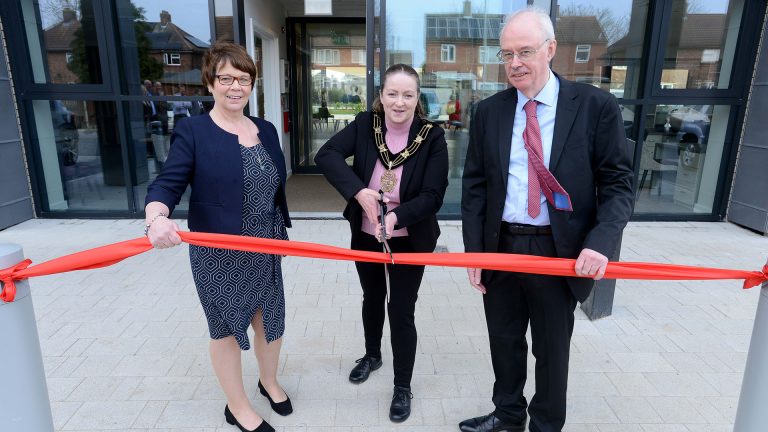City of York Council has made grant payments worth more than £223,500 to eligible York businesses affected by the rise of the Omicron variant via the latest phase of Additional Restrictions Grant payments
York grants almost £250,000 to city firms hit by Omicron variant
Leeds-based furniture manufacturer lands £400,000 investment to fund management-buy-in acquisition
Actually Group invests £4m in new Yorkshire luxury staycation destination
Food Enterprise Zone Hub building almost ready to receive occupants
Pygott & Crone have been appointed as the commercial agent for The Hub building at the South Lincolnshire Food Enterprise Zone, meaning that businesses will soon be able to express an interest in office and workshop space.
£21m full fibre rollout sparks Lincoln jobs boost as contractor appointed
CityFibre, the independent full fibre platform, has awarded a £21m contract to Trust Utility Management Ltd. to deliver its network rollout in Lincoln, a project which has sparked the creation of more than 80 local jobs.
Lincoln has been chosen as one of the latest cities to benefit from CityFibre’s £4bn Gigabit City Investment Programme, which will bring next generation, gigabit-speed broadband to nearly every home and business in the city, and to up to 8 million premises nationwide.
The latest milestone has incited a recruitment drive with new workers needed to support throughout the build process.
Works commenced in Lincoln in March and real progress is already being made. The rollout is progressing into new areas with construction underway in Abbey Ward while work in areas such as Glebe Ward is set to start in the near future. Once the city-wide rollout reaches completion in 2024, almost every home and business locally will have access to full fibre services from a choice of internet service providers.
Neal Wright, city manager for Lincoln, said: “CityFibre is investing £21m in a full fibre roll out which will benefit residents and businesses across the city with broadband of up to 900mb. In Trust Utility Management Ltd, we have found a partner that recognises the importance of this project, knows what is needed to deliver for the people of Lincoln and can grow with us as we move into new areas of the city.
“In addition to future-proofing Lincoln’s digital capabilities, this project is providing a welcome boost to the jobs market. It has sparked the creation of 83 new roles, with local talent needed to help us carry out this important project.”
Liam Coyne, commercial director, Trust Utility Management Ltd., said: “We are pleased to have been appointed by CityFibre to construct full fibre networks in Lincoln and support its wider plans of transforming the digital infrastructure of cities and towns across the UK.
“We are certain that with our vast utility contract management experience and the high calibre team that we are building, this project will prove to be a success for Trust Utility Management Ltd. and our client, CityFibre.”
In Lincoln, the team is using a range of construction methods while working in close partnership with Lincoln City and the County Council and local communities to deliver a fast rollout while managing potential disruption.
£12m Extra Care facility opens in Lincoln
Lincoln’s De Wint Court Extra Care facility in Boultham Moor has been officially opened, with residents set to move in next month.
Value of ‘take private’ deals jumps seven-fold to £29.3bn
- The number of deals has also increased to 19 in 2021 compared to just five in 2020
- Consistent recovery of deal volumes expected if stock market valuations come under further pressure
New scheme will compensate postmasters who exposed Horizon IT scandal
“That is why we have set up this new compensation scheme for those who played a crucial role bringing this scandal to light, which I hope provides a measure of comfort.
Postal Affairs Minister Paul Scully said: “The pain and distress that the Horizon scandal has inflicted on hundreds of postmasters over the years cannot be overstated.
“Without the efforts of the 555 pioneering postmasters who brought this to court, this injustice may never have seen the light of day nor would the statutory inquiry have been set up, which is why I made it my priority to ensure they are all fairly compensated.“While we can’t right the wrongs of the past, I hope this important compensation package is a turning of the page, as we continue working with the Post Office to ensure something like this can never happen again.”
The scheme comes after the government announced a separate scheme last year to provide funding for full and final settlements for eligible postmasters who have had their Horizon-related conviction overturned, with those eligible to receive an interim payment of up to £100,000 each. The Department for Business, Energy & Industrial Strategy has promised to set out details of the new scheme, including how postmasters can submit compensation claims, in due course.











